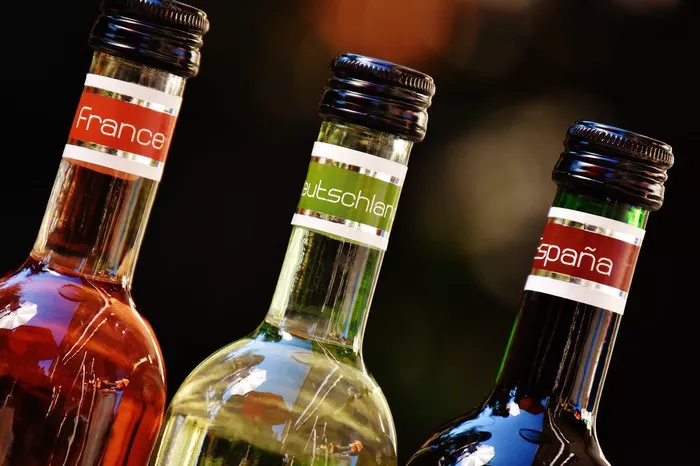In recent years, the market for non-alcoholic beverages has witnessed a significant surge, with consumers increasingly seeking alternatives that allow them to enjoy the social aspects of drinking without the effects of alcohol. Heineken 0.0 has emerged as a popular choice, marketed as a non-alcoholic beer. However, a critical question lingers in the minds of consumers: is Heineken 0.0 beer really alcohol-free? In this comprehensive exploration, we delve into the brewing process, regulations, and the science behind Heineken 0.0 to uncover the truth behind its alcohol content.
Understanding the Brewing Process: Is There Really No Alcohol?
Heineken 0.0 is crafted using a process that mirrors traditional brewing, with one significant difference – the removal of alcohol. The brewing process involves the fermentation of malted barley, hops, and water, creating the familiar beer flavor. However, unlike its alcoholic counterparts, Heineken 0.0 undergoes an additional step to eliminate alcohol. The brewing industry employs advanced technology to reduce the alcohol content to a level considered negligible. But is Heineken 0.0 beer really alcohol-free, or does it contain trace amounts that could impact consumers?
Regulatory Standards: Deciphering the Alcohol-Free Definition
The term “alcohol-free” can be misleading, as regulatory standards for labeling vary across countries. In the United States, a beverage can be labeled as non-alcoholic if it contains less than 0.5% alcohol by volume (ABV). This standard aligns with the definition set by the Alcohol and Tobacco Tax and Trade Bureau (TTB). In Europe, the European Union Directive allows for a slightly higher threshold, with products containing up to 0.5% ABV also labeled as alcohol-free. With this regulatory framework in mind, is Heineken 0.0 compliant with these standards, or does it exceed the permissible alcohol content?
Unmasking the Ingredients: The Role of Natural Fermentation
One key aspect to consider when evaluating the alcohol content of Heineken 0.0 is the role of natural fermentation in the brewing process. Even though the alcohol is removed post-fermentation, trace amounts may persist due to the natural breakdown of sugars during the brewing process. These residual traces could be a factor in determining whether Heineken 0.0 can be classified as truly alcohol-free. As we navigate the intricacies of brewing, it becomes essential to scrutinize whether these traces have any practical implications for consumers, especially those who adhere to strict alcohol-free lifestyles.
See Also: countries with best beer
Scientific Analysis: Can Traces of Alcohol Impact Health?
To address concerns about the residual traces of alcohol in Heineken 0.0, it is crucial to turn to scientific analysis. Studies suggest that beverages with less than 0.5% ABV are unlikely to produce intoxicating effects, making them generally safe for consumption, even by individuals who abstain from alcohol for health or religious reasons. However, some individuals may be more sensitive to alcohol, and even minimal traces could trigger reactions. As we explore the scientific dimensions of Heineken 0.0, it becomes apparent that understanding one’s own tolerance and preferences is paramount in making an informed choice.
Consumer Experiences: Does Heineken 0.0 Live Up to Its Promise?
To gain insights into the practical side of the debate, it is valuable to consider the experiences of consumers who have opted for Heineken 0.0. Reviews and testimonials provide firsthand accounts of taste, satisfaction, and the overall drinking experience. Consumers often share their perspectives on whether they perceive Heineken 0.0 as a genuine alcohol-free alternative and whether they have encountered any unexpected effects. Exploring these real-world experiences can offer a nuanced understanding of whether Heineken 0.0 aligns with its marketing claims.
Heineken’s Perspective: A Closer Look at Brand Claims
Heineken, as a brand, is committed to transparency and providing accurate information to consumers. Examining Heineken’s official statements on Heineken 0.0 sheds light on the company’s perspective. The brewing giant asserts that Heineken 0.0 is indeed alcohol-free, adhering to the regulatory standards set by relevant authorities. Additionally, the company emphasizes the rigorous testing and quality control measures in place to ensure that Heineken 0.0 meets the declared alcohol content. This raises the question: Can consumers trust Heineken’s assurances, or is there more to the story than meets the eye?
Comparative Analysis: Heineken 0.0 vs. Other Non-Alcoholic Beers
To contextualize the discussion surrounding Heineken 0.0, it is informative to compare its alcohol content with other non-alcoholic beers in the market. Analyzing the labels and specifications of various non-alcoholic options can provide a benchmark for understanding whether Heineken 0.0 stands out as a truly alcohol-free alternative. This comparative analysis allows consumers to make informed choices based on their preferences and expectations, taking into account the varying alcohol thresholds set by different brands.
Conclusion: Navigating the Nuances of Non-Alcoholic Beer
As we unravel the intricacies of Heineken 0.0, the question of whether it is truly alcohol-free remains complex. The brewing process, regulatory standards, scientific analysis, consumer experiences, brand claims, and comparative analysis all contribute to a nuanced perspective. While Heineken 0.0 may meet legal definitions of alcohol-free, consumers must consider individual sensitivities, preferences, and health considerations. Ultimately, the decision to embrace Heineken 0.0 as a genuine alcohol-free option lies in the hands of each discerning consumer, armed with the knowledge gleaned from this exploration into the world of non-alcoholic beer.


